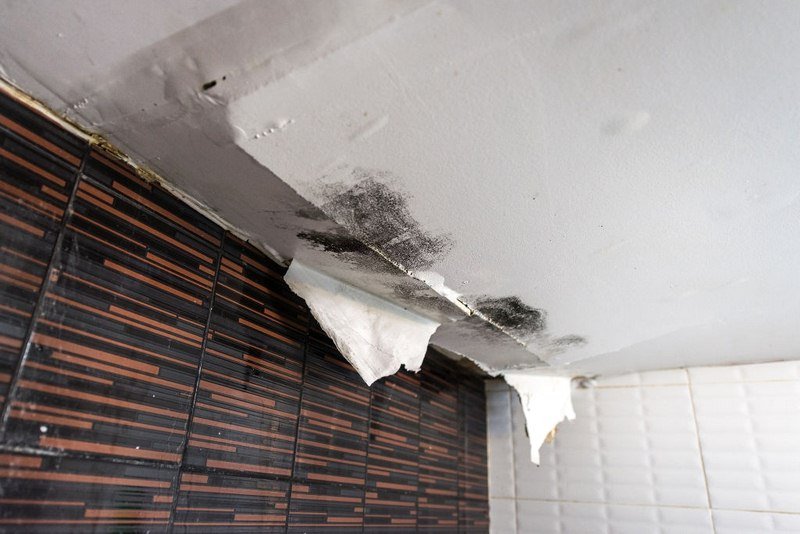Breaking Down the Six Most Common Causes of Home Water Leaks
Breaking Down the Six Most Common Causes of Home Water Leaks
Blog Article
The content below relating to How to Find Water Leaks is particularly attention-grabbing. Try it and make your own personal results.

Leaks not only cause waste of water yet can likewise cause unneeded damage to your residence as well as promote undesirable natural growth. By looking and recognizing for daily situations that create leaks, you can protect your house from future leaks as well as unnecessary damage.
Encroaching origins
Many water leakages start outside your house instead of inside it. If you discover an abrupt reduction in water stress, say in your faucet, take time to head out as well as analyze your lawn. You may discover damp spots or sinkholes in your yard, and that could imply that tree origins are invading water lines triggering water to permeate out. You can have your plumber look for breach, particularly if you have trees or hedges near your residential property.
Corroded water systems
As time goes by, your plumbing system ages and rust such as corrosion might start eating away the pipelines. This could be the cause of discoloration or warping on your water pipes. This requires an evaluation with your plumber instantly. Take into consideration changing the pipes because they are at a higher danger of deterioration than the more recent versions if our plumbing system is old.
Faulty Pipeline Joints
The factor at which your pipelines connect is frequently the weakest link in the waterline. Pipe joints can deteriorate in time, resulting in water leakages. The majority of pipe joints are not quickly noticeable. If you have loud pipelines that make ticking or banging sounds, particularly when the warm water is switched on, your pipe joints are possibly under a great deal of stress. It is a good idea to have your plumber check your system yearly.
Instantaneous temperature level adjustments.
Extreme temperature adjustments in our pipes can cause them to increase as well as contract suddenly. This growth and tightening may create fractures in the pipes, especially if the temperature level are below freezing.
Poor Water Connectors
At times, a leak can be created by loose hoses as well as pipelines that supply your devices. In case of a water links leakage, you may notice water running directly from the supply line or pools around your appliances.
Blocked Drains
Obstructed drains could be frustrating and inconveniencing, however they can sometimes end up triggering an overflow leading to rupture pipelines. Keep eliminating any materials that might drop your drains that might obstruct them to prevent such aggravations.
All the above are reasons for leakages yet not all water leaks result from plumbing leaks; some leakages might come from roofing system leakages. All leakages should be repaired right away to avoid water damage.
Leaks not just create waste of water yet can also cause unneeded damages to your residence and promote unwanted organic growth. By comprehending and also looking for everyday circumstances that trigger leakages, you can secure your residence from future leakages and unneeded damage. Today, we will look at 6 leakage creates that may be creating your pipelines to leak.
At times, a leakage can be triggered by loose pipes as well as pipes that supply your home appliances. In instance of a water links leakage, you might see water running straight from the supply line or pools around your home appliances.
How To Check For Water Leak In Your Home
How To Check for Leaks
The average household's leaks can account for nearly 10,000 gallons of water wasted every year and ten percent of homes have leaks that waste 90 gallons or more per day. Common types of leaks found in the home are worn toilet flappers, dripping faucets, and other leaking valves. These types of leaks are often easy to fix, requiring only a few tools and hardware that can pay for themselves in water savings. Fixing easily corrected household water leaks can save homeowners about 10 percent on their water bills.
To check for leaks in your home, you first need to determine whether you're wasting water and then identify the source of the leak. Here are some tips for finding leaks:
Take a look at your water usage during a colder month, such as January or February. If a family of four exceeds 12,000 gallons per month, there are serious leaks.
Check your water meter before and after a two-hour period when no water is being used. If the meter changes at all, you probably have a leak.
Identify toilet leaks by placing a drop of food coloring in the toilet tank. If any color shows up in the bowl after 10 minutes, you have a leak. (Be sure to flush immediately after the experiment to avoid staining the tank.)
Examine faucet gaskets and pipe fittings for any water on the outside of the pipe to check for surface leaks.
Undetected water leaks can happen without the home or business owner even realizing. If you suspect a water leak, but not able to find the source. It is time to contact a professional water leak detection service, The Leak Doctor.
How To Find a Water Leak In Your Home
https://www.leakdoctor.com/blog/How-To-Check-For-Water-Leak-In-Your-Home_AE197.html

As a fervent reader on How to detect water leaks in your home, I thought sharing that post was mandatory. So long as you enjoyed reading our page please do not forget to pass it around. Thanks a lot for going through it.
Prices & Booking Report this page